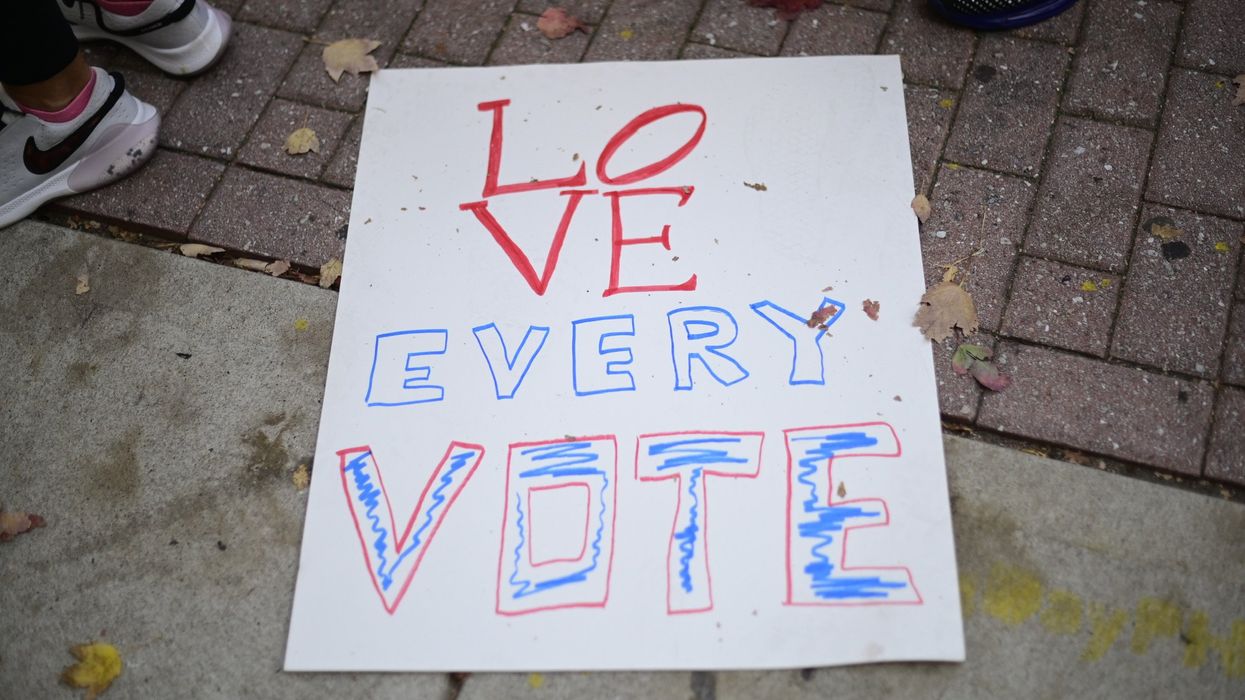Kickols is the communications manager for the Election Reformers Network.
Several election law authorities, elected officials and election administration experts came together recently to discuss potential mail-in ballot counting delays, the challenges of reporting on inaccurate fraud claims, and other election dynamics on the horizon in Pennsylvania. And yet they had a positive message: The Keystone State is well-positioned to count ballots faster this fall.
The discussion took place during an online event with media hosted by the Election Overtime Project, which supports journalists in their coverage of close and contested elections. Election Overtime is an initiative of the Election Reformers Network.
The panel featured esteemed experts including U.S. District Court Judge John Jones, who presided over critical 2020 election challenges; former Secretary of the Commonwealth Kathy Boockvar, who was a defendant in suits filed by President Donald Trump against Pennsylvania officials; Jennifer Morrell, a leading consultant on election administration and auditing; and Emma Shoucair, a legal specialist focused on voting issues.
The event was the third in a series of media briefings that will continue through the election cycle. (A video of the briefing is available here.)
Panelists agreed that state election officials are in a good position to finish the count earlier this year than in 2020, when “four excruciating days” passed before Pennsylvania issued preliminary results, in the words of Shoucair. She cited several reasons for the 2020 delay, including the pandemic and the very recent adoption of universal mail-in voting, which was passed at the end of 2019. Reasons to expect a quicker turnaround in 2024, according to Shoucair, include that “the boards of elections have refined their processes for counting mail-in ballots and have invested in additional personnel and equipment.”
But there are still structural hurdles. “What folks need to know,” said Jones, “is that because our General Assembly lacks the political will to fix a broken election code, we do not have appropriate pre-canvassing [preparing mailed ballots for tabulation] in the Commonwealth of Pennsylvania. That’s a dreadful flaw, and it leads to delayed results. It will be a couple of days, which will lead into the narrative that there have been these phantom vote drops and something nefarious going on. And that’s not it at all.”
Jones urged reporters to reality test allegations before reporting on them.
Boockvar agreed, and she pleaded with journalists on the call to be informed and thoughtful about their election reporting. Boockvar pointed out the importance of not allowing reporting the news of something outrageous said by a politician to look like confirmation of that politician’s statement. That “can end up unintentionally becoming a source of disinformation that then leads to threats against election officials,” she explained.
Morrell, the co-founder of The Elections Group, cautioned against misrepresenting audits and recounts as an indication that voting results are flawed.
“An audit is a routine part of the post-election process,” Morrell explained. “It’s designed to ensure the systems work as expected. It’s not a bad word. A recount is performed in response to something that happened in a specific contest, such as a close margin, or it could be initiated automatically by statute or requested by a candidate.”
Getting more information in circulation about these procedural elements of election is the goal of Election Overtime. The project website offers a comprehensive set of resources for journalists including guides for reporting on election transparency, verification processes and judicial procedures. The program also offers an extensive speaker bureau to connect journalists with expert commentary for local and national coverage. The program focuses on Arizona, Georgia, Michigan, New Mexico, North Carolina, Pennsylvania and Wisconsin.
As ERN Executive Director Kevin Johnson explained, the program is anchored in the idea that, just as in sports, “who won an election is not a subjective question. It’s a matter of fact and a matter of law.” Johnson stressed the importance of helping “voters see the full process of what happens when elections are close and ‘go into overtime” so that it will be “well known and clear that elections, too, have rules that make it absolutely clear who won.”
ERN Vice President Heather Balas called attention to key facts voters should know about presidential elections. “We believe that sound news coverage of the election process — not just of the horse race — is crucial to the future of our democratic republic,” said Balas. “So, with humility, we offer our support to the hardworking election reporters of this nation.”
Materials used on this program have been produced with the generous support of The Carter Center, the Gerald R. Ford Presidential Foundation, and the Bridge Alliance (which publishes The Fulcrum).


















 Senate Committee on Commerce, Science, and Transportation ranking member Sen. Maria Cantwell (D-WA) (R) questions witnesses during a hearing in the Russell Senate Office Building on Capitol Hill on February 10, 2026 in Washington, DC. The hearing explored the proposed $3.5 billion acquisition of Tegna Inc. by Nexstar Media Group, which would create the largest regional TV station operator in the United States. (Photo by Chip Somodevilla/Getty Images)
Senate Committee on Commerce, Science, and Transportation ranking member Sen. Maria Cantwell (D-WA) (R) questions witnesses during a hearing in the Russell Senate Office Building on Capitol Hill on February 10, 2026 in Washington, DC. The hearing explored the proposed $3.5 billion acquisition of Tegna Inc. by Nexstar Media Group, which would create the largest regional TV station operator in the United States. (Photo by Chip Somodevilla/Getty Images)
